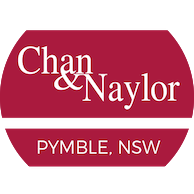In the event of the death of a taxpayer, an executor may need to lodge a trust tax return for the deceased’s estate until all the income and assets are completely distributed to the beneficiaries.
If you are the executor, here’s what you need to know about preparing tax returns for a deceased estate.
What is a Deceased Estate?
A deceased estate is a trust estate that includes assets such as property, shares, bank deposits, and personal possessions of the person who has passed away. In addition, the income that these assets receive after the date of death is also part of the deceased estate.
The executor or the trustee of the deceased estate is generally required by the Australian Taxation Office (ATO) to lodge a final individual tax return for the deceased. The tax return will include the deceased’s income from the start of the financial year up until the date of death.
However, if the deceased’s assets continue to receive income after the death, the trustee ( i.e the executor) may also be required to lodge a trust tax return for the remaining dates of the income year.
Also, in some cases, a trust tax return will have to be lodged every financial year until the deceased estate is completely and legally disposed of and is no longer earning income.
Exemptions
There are a few instances where you, as the executor, won’t have to lodge a trust tax return for the deceased estate. According to the ATO, if you fully dispose the estate in the same income year as the date of death and meet both the criteria below, you wouldn’t have to lodge a trust tax return.
1. The deceased estate’s income is currently not entitled to any beneficiary, and
2. The assessable or taxable income of the estate is lower than the tax-free threshold for individuals.
In addition, if you do not fully dispose of the deceased estate in the same income year as the date of death, you won’t have to lodge a trust tax return as long as all of the following apply:
1. The deceased passed away three years before the end of the income year.
2. The actual profit or the net income is lower than the individual tax-free threshold.
3. The estate did not obtain any income from capital gains nor from franked dividends.
4. The estate did not obtain any income from which tax has been withheld.
5. The estate did not carry on a business.
6. The income of the trust estate is not currently entitled to any beneficiary.
7. All the beneficiaries of the estate are Australian residents.
Lodging a deceased estate tax return
To lodge a tax return, you will need to get a Tax File Number (TFN) for the deceased estate. This is needed because a deceased estate is treated as a trust by the ATO for tax purposes.
Once you’ve obtained the TFN, you can use the ATO’s trust tax return 2018 form here to lodge your trust tax return. Many may find handling this whole process between the Deceased’s final personal tax return and the trust tax return overwhelming in the midst of losing someone, normally the loved ones, please feel free to contact us for assistance.
****************


